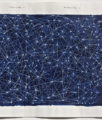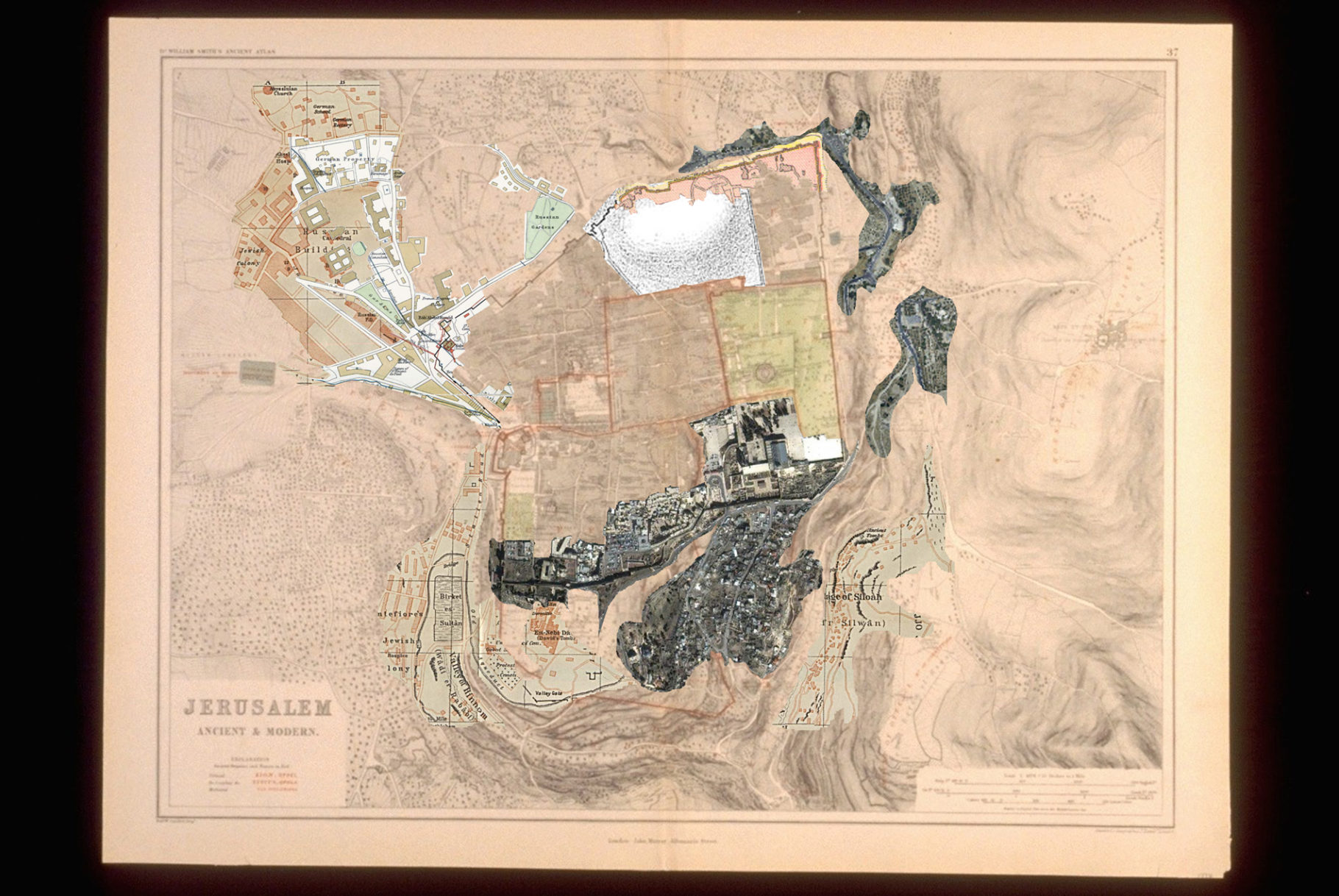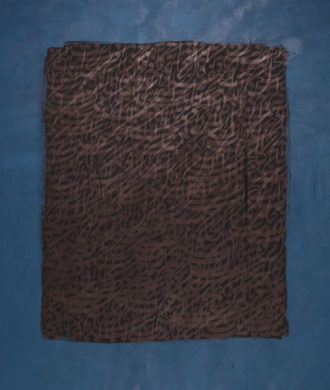The Binary Art
Mustafa Khanbhai engages with the nature of history and memory.
History is alive, in a constant flurry, in conflict with its own existence. It is chaos, in parts due to its maker, and in parts due to its memory. In the whirlpool of time, these two liquids mix to create its own bitter ambrosia. Mustafa’s art shuffles between the intensely personal to the frustratingly worldly. In his ongoing series ‘History is Bad Memory’, he looks at this doomed marriage between memory and history. He combines materiality and medium with a studied purpose.
About the ongoing conflicts in the Middle East where art continues to be destroyed, smuggled-off or bombed by terrorists, Mustafa feels a growing sense of disbelief and frustration.
“They are destroying their own art”, Mustafa says. It is a scrubbing off of their own heritage, their history, altering the cultural chromosome of their DNA forever. This became the inspiration for his work. The artist chose the infinite loop of the GIF to highlight its immediacy. He fused it with the soul of a Persian miniature painting and unleashed the foot soldiers of terror who relentlessly whitewash their own legacy.
In his cartographic collages, Mustafa collected maps of Jerusalem – the birthplace – the war zone. The maps were carefully selected across centuries and showed the timeline of the city’s shifting boundaries. It is a history that is layered in pain. He juxtaposed the different maps and it echoed with the chorus of many voices. Some louder than others.
Historian Edward Hallet Carr wrote in his acclaimed book What Is History?, “History consists of a corpus of ascertained facts. The facts are available to the historian in documents, inscriptions and so on, like fish on the fishmonger’s slab. The historian collects them, takes them home, and cooks and serves them in whatever style appeals to him.” He is also well known to have written, “Study the historian before you begin to study the facts.”
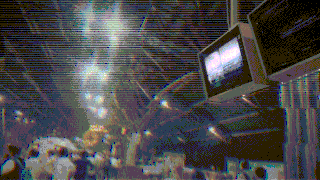
The jarring video of the platform induces a headache along with raising questions about the documenters of this history. It questions the historian. The unchecked hand of the recorder of life. In its seismic aberrations, days can shift dates, cultures can change colour, prejudice can find home, war can find reason. Like the hollow sky getting washed by clouds, history shifts, and shuffles to meander to memories and its makers.
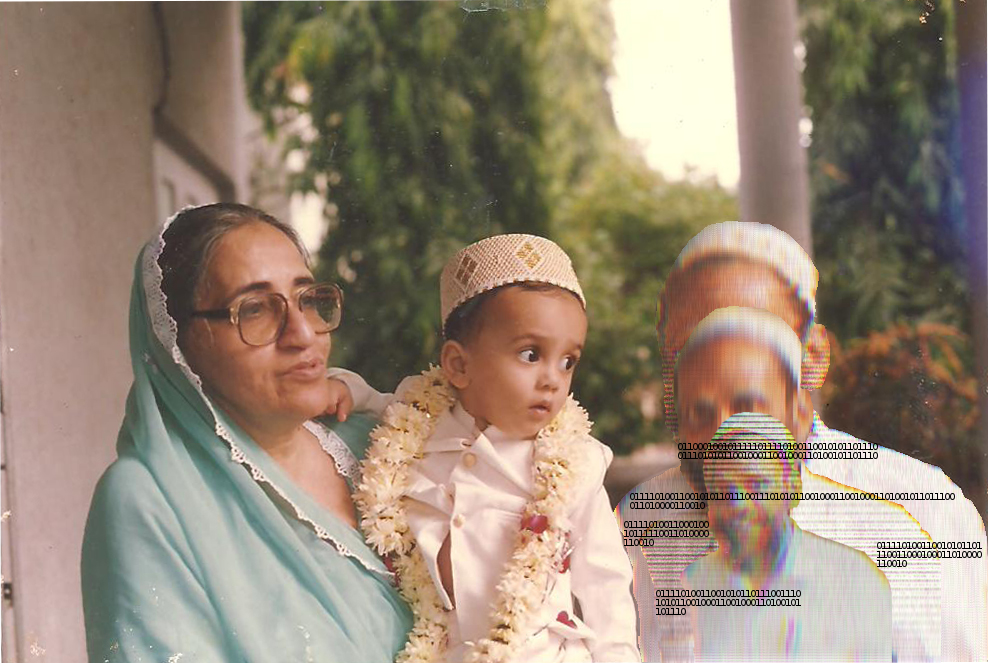
It is his personal reflection of memory and history that crawls under your skin and sinks into you. It is a picture of him just after his naming ceremony. “Not that that matters”, Mustafa says. Though it does. His grandma and grandpa envelop him in a time that was a celebration. It is the memory of those simpler times to which he reaches out. He etches the memory of his grandpa’s Alzheimer’s, morphing the image in the shivers of its lived history. Within its hidden and exposed surfaces, he delivers the binary chapter of his art.

